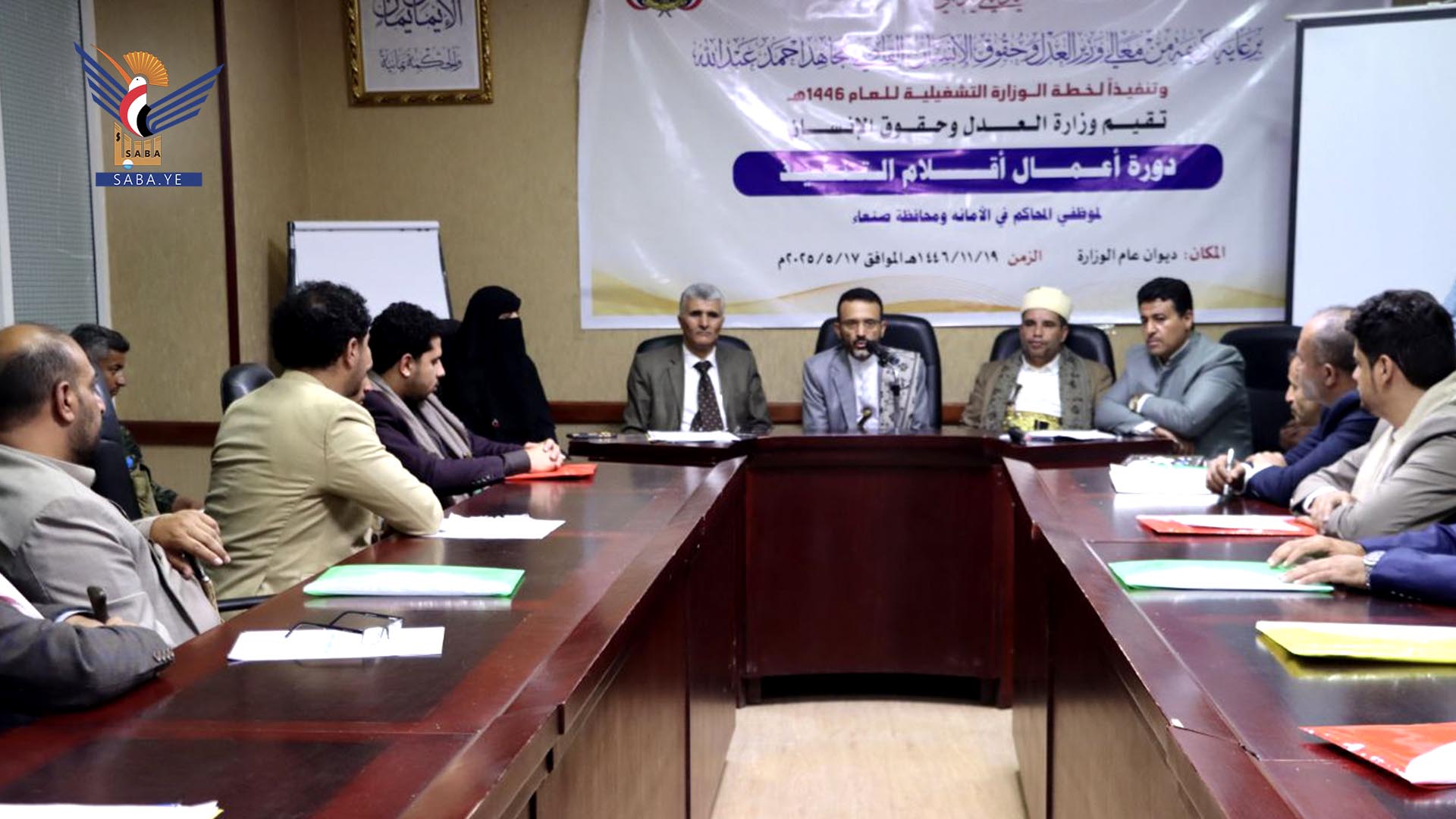
Sana'a – Saba:
A training course aimed at court clerks and enforcement assistants working in the courts of the Capital Sana'a and Sana'a governorate concluded on Wednesday in Sana'a. The course was organized by the Ministry of Justice and Human Rights.
At the closing ceremony, Deputy Minister of Justice and Human Rights Judge Ibrahim al-Shami stated that the course is part of the Ministry's judicial reform plan to enhance performance, ensure effective justice, and improve the skills of judicial sector employees in implementing judgments according to legal standards.
Judge al-Shami expressed his hope that the trainees would apply the course content to improve their work, particularly in the enforcement of judgments, which he noted is the final and crucial stage where citizens expect swift and accurate restoration of their rights.
He cautioned enforcement heads and assistants against any violations, emphasizing the Ministry's zero tolerance for lapses and its commitment to accountability through reward and punishment.
Al-Shami stressed that the enforcement phase is highly visible to the public and significantly impacts the judiciary's reputation, urging speedy procedures and the importance of integrity and competence within the enforcement office.
Judge Ahmed al-Kuhlani, head of the Financial Affairs Sector at the Ministry of Justice, and Judge Taha Oqba, President of the Capital Sana'a Court of Appeal, also attended the closing ceremony.
Judge Oqba emphasized the need for reward and punishment and reminded attendees that enforcement assistants are overseen by the enforcement judge. He also warned against the collection of unofficial fees from citizens.
Certificates were awarded to the 30 participants at the end of the five-day course, which included theoretical lectures and practical exercises on judgment enforcement mechanisms and overcoming obstacles.
A training course aimed at court clerks and enforcement assistants working in the courts of the Capital Sana'a and Sana'a governorate concluded on Wednesday in Sana'a. The course was organized by the Ministry of Justice and Human Rights.
At the closing ceremony, Deputy Minister of Justice and Human Rights Judge Ibrahim al-Shami stated that the course is part of the Ministry's judicial reform plan to enhance performance, ensure effective justice, and improve the skills of judicial sector employees in implementing judgments according to legal standards.
Judge al-Shami expressed his hope that the trainees would apply the course content to improve their work, particularly in the enforcement of judgments, which he noted is the final and crucial stage where citizens expect swift and accurate restoration of their rights.
He cautioned enforcement heads and assistants against any violations, emphasizing the Ministry's zero tolerance for lapses and its commitment to accountability through reward and punishment.
Al-Shami stressed that the enforcement phase is highly visible to the public and significantly impacts the judiciary's reputation, urging speedy procedures and the importance of integrity and competence within the enforcement office.
Judge Ahmed al-Kuhlani, head of the Financial Affairs Sector at the Ministry of Justice, and Judge Taha Oqba, President of the Capital Sana'a Court of Appeal, also attended the closing ceremony.
Judge Oqba emphasized the need for reward and punishment and reminded attendees that enforcement assistants are overseen by the enforcement judge. He also warned against the collection of unofficial fees from citizens.
Certificates were awarded to the 30 participants at the end of the five-day course, which included theoretical lectures and practical exercises on judgment enforcement mechanisms and overcoming obstacles.
